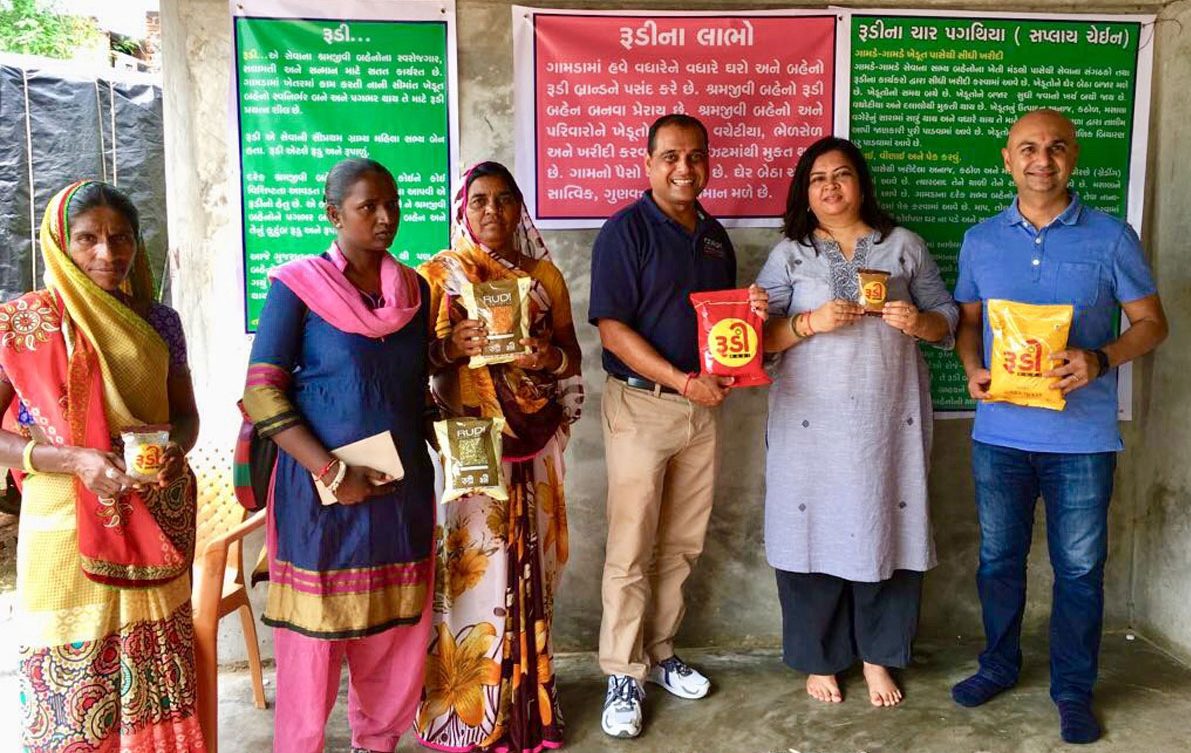While the recent federal budget offered tax breaks for seniors and millennials, the Government of Canada’s creation of the $800 million Social Finance Fund last November has caught the attention of Yogesh Ghore.
Ghore, a senior program staff member at Coady International Institute, says the investment into social innovation has renewed global interest in social enterprise.
“Canada is positioning itself as a leader in this field of social innovation,” Ghore says.
The Government’s announcement stated the goal was to not only give non-profit and social purpose organizations access to new financing for innovative ideas, but to also connect them with non-government investors “seeking to support projects that will drive positive social change.”
While some of the funding will be direct investment into social enterprises, other parts of the fund focus on helping social enterprises prepare for the future and Ghore says this is where Coady can play a role.
“We are trying to build this knowledge of social enterprise, being a new field, by strengthening local leadership in this area.”
Ghore and co-facilitator Farouk Jiwa have taken a module from Coady’s Livelihoods and Markets course and created a new course, Social Enterprise for Inclusive Local Economies. The course will welcome a mix of international and Canadian participants to StFX University from June 10 to 21.
The goal is to have both entrepreneurs and ecosystem actors together with the benefit that there is cross-learning and understanding of each other’s perspectives.
“All of our programs are open to anybody but most of our courses are international,” Ghore says. “Given the topic, this course is not only open to those on the outside but also local participants who are interested in social enterprise. This includes those running or developing social enterprises as well as actors or supporters who want social enterprise to grow in their own region.”
While the context may be different between the Maritimes and sub-Saharan Africa, Ghore believes the obstacles to starting a social enterprise are similar. This includes how to find funding, how to add value to products, how to find and develop markets, how to register the organization and in what form (for profit/not for profit), and how to develop the right strategy.
The course will not only examine the entrepreneurship side of starting a social enterprise but also the ecosystem’s actors – funders, support organizations, service providers, training institutions, and government.
“The goal is to have both entrepreneurs and ecosystem actors together with the benefit that there is cross-learning and understanding of each other’s perspectives,” Ghore says.
As a co-founder and director of Honey Care Africa, Jiwa will bring his firsthand experience of establishing a social enterprise to the course. Together with the participants, Ghore and Jiwa will explore how to balance the social mission with the issue of sustainability of an organization.

Yogesh Ghore (third from right) and Farouk Jiwa (right) meet with members of the social enterprise RUDI Multi Trading Company during a visit to the Self Employed Women’s Association in India. Owned and operated by women entrepreneurs, RUDI describes itself as enabling the direct promotion and marketing of the agro commodities procured through Farmer’s Association in the rural retail network of farmers and agriculture labourers across various villages in Gujarat, India.
Ghore says Nova Scotia is setting an example on how to create an enabling environment where the government and other players promote social enterprise as a sector.
“We will try to have field trips to see some innovative work by social enterprises but we will also go and meet some ecosystem actors like the government, incubators, accelerators, and funders so participants will have good exposure to all the things they need to learn about social enterprises,” Ghore says.
By offering Social Enterprise for Inclusive Local Economies to local and global participants, Coady is in a way returning to the roots of the Antigonish Movement. The course is also a part of the institute’s efforts to work more closely with StFX Extension and the Centre for Employment Innovation.
Jaime Smith, Director of Social Innovation, Coady International Institute and StFX Extension Department, says creating learning spaces that bring together social change leaders and innovators from Nova Scotia and around the world is an opportunity to strengthen communities and build capacity for social enterprise globally.
“Social enterprise has been shown to create meaningful and equitable access to employment, in particular for groups whom have been historically underrepresented in the workforce,” Smith says. “At a time when we see people seeking employment and employers with jobs to fill, it is important for us to look to at new ideas that can bridge that gap.”
Ghore says Coady is offering something unique by bringing participants from all across the world with very different experiences who will enrich the experience of local Canadians.
“We will build some solidarity that there is a bigger movement around social enterprises and that they are just not doing something little around Nova Scotia.”
To learn more about the course visit coady.stfx.ca or apply by emailing cworth@stfx.ca